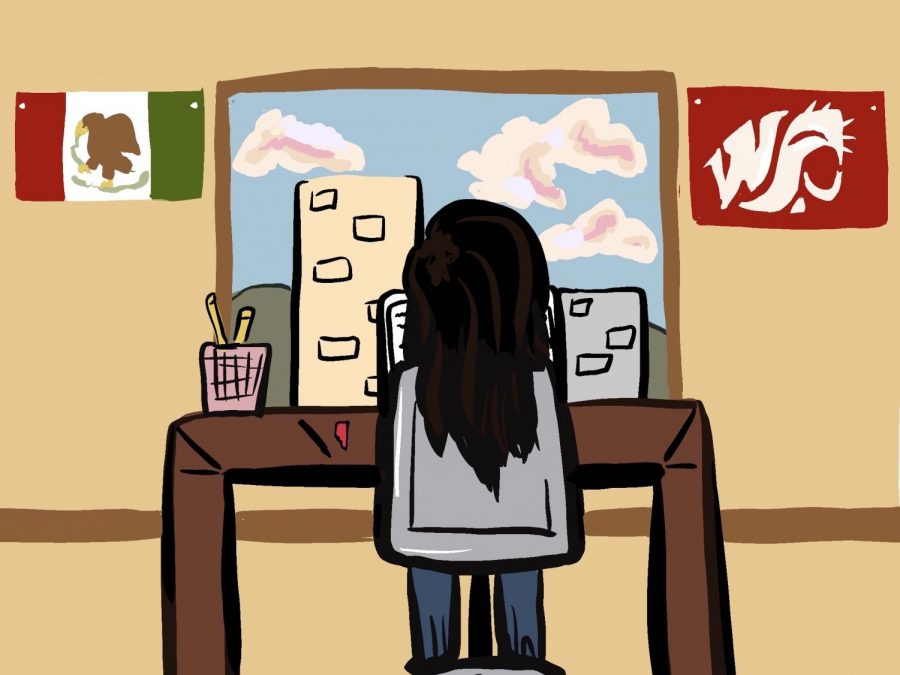University officials express importance of international students feeling welcome at WSU
ICE reversed policy that could have deported international students; WSU Office of International Programs received outpour of support
International students are no longer being required by Immigrations and Customs Enforcement to take in-person classes at risk of deportation.
July 21, 2020
WSU doubled down on its support for international students amidst Immigrations and Customs Enforcement’s reversal of its policy to force international students to take in-person coursework or leave the country.
Many universities and colleges filed lawsuits because of ICE’s guidelines, said Kate Hellmann, director of International Student and Scholar Services in WSU’s Office of International Programs.
ICE reversed its decision on July 14 at a court hearing. Now, international students will follow the guidelines ICE had announced in March. In fall, international students will be able to take classes however their university decides to offer them, whether that is face-to-face, a hybrid approach of in-person and online courses, or entirely online, Hellmann said.
“This push to require universities to reopen really put our international students in the crossfire,” she said.
International students should be able to feel safe and welcome, she said. They should not have to worry about additional obstacles like the original policy decision announced by ICE on July 6. Now that the policy has been rescinded, international students can focus on getting an education, Hellmann said.
The Office of International Programs received more than 500 emails within the first couple hours after ICE’s directive that would have forced international students to take at least one in-person course. The office also received over 1,000 phone calls in the first couple days.
Yan Su, international student from China and doctoral candidate with a focus in communications, said he was not surprised by the policy because it was consistent with other policies by the Trump administration. He said he thought the government was trying to coerce universities into opening.
Su said he does not have to take any more coursework.
“I was not worried about myself personally, but I did feel very sympathetic and empathetic to other international students,” he said. “I know a lot of Chinese students and some international students from other countries who are very afraid of being deported.”
After the policy was rescinded, Hellmann said the office received phone calls and emails, thanking them for advocating for its international students. WSU also helped file a lawsuit as part of a larger lawsuit under Washington State Attorney General Bob Ferguson.
Asif Chaudhry, vice president for International Programs, published a letter on July 16 stating ICE’s decision may make it seem like international students are not welcome in the U.S., but the sentiment is not true “where we live.”
The letter also stated international students encourage innovation and positively impact the economy in Washington.
They “are part of creating a learning environment that fosters peace, understanding, and global competence in a world of interconnected global challenges,” according to the letter.
There are long-term effects from ICE’s policy, Hellmann said. She is concerned international students will not trust the government.
“There are no other university systems in other countries that have put their international community through the ringer in the way that we have,” Hellmann said.
ICE’s policy showed that the U.S. does not value international students, she said. International enrollment is increasing in other English-speaking countries, like Canada and Australia.
WSU values its international students, but it cannot change federal guidance, which impacts international recruitment, she said.
“The reality is that [international students are] bringing quite a lot to the classroom, to the experiences that we have, and we need to protect all of our students, regardless of where they’re from, Hellmann said, “whether they’re a DACA student or an international student or whether they’re from up the street in Bellevue.”








